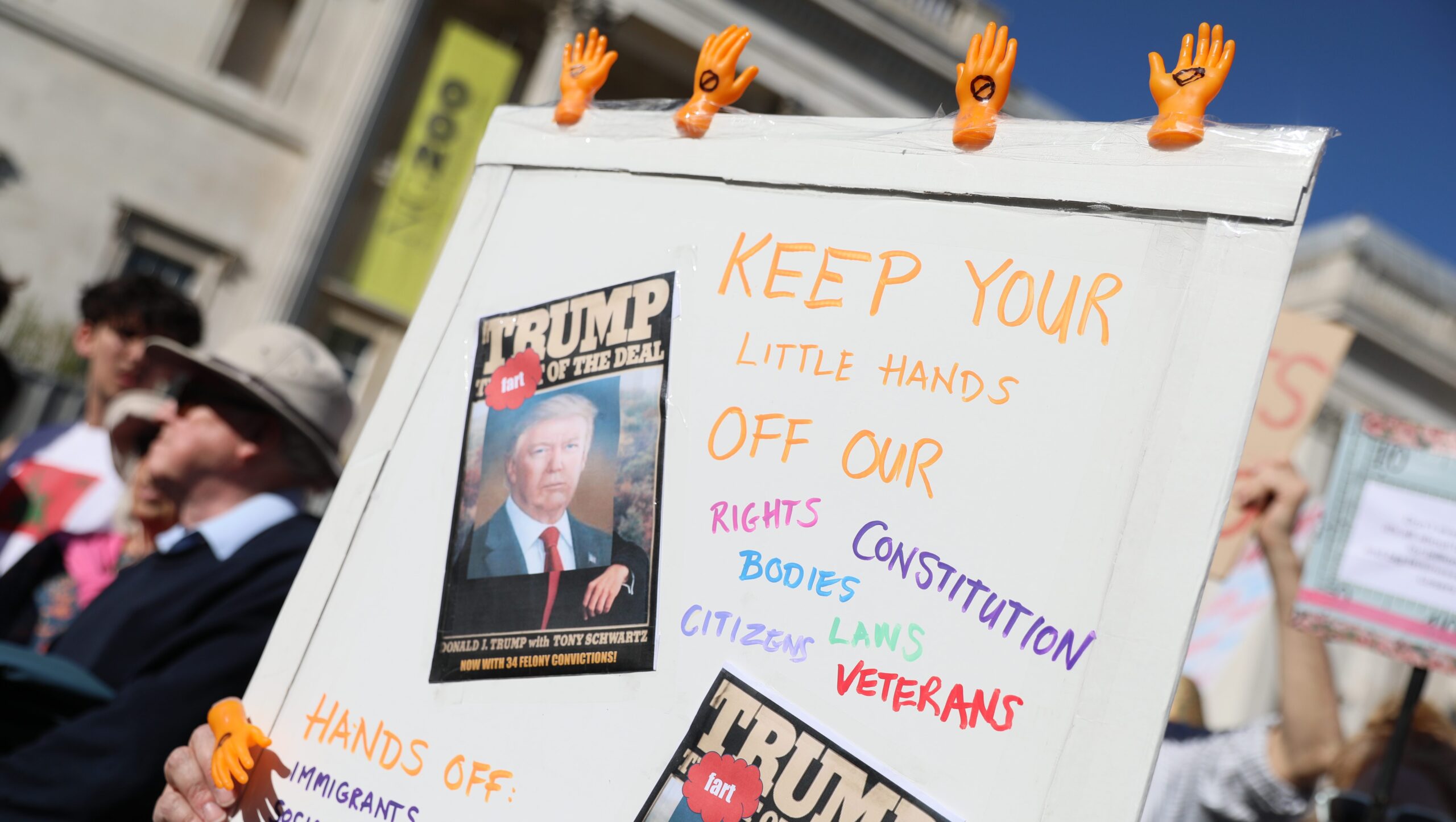It’s abnormal folks, and never superheroes, who result in justice and alter in the actual world. In “Lilly,” writer-director Rachel Feldman follows the era-defining work of 1 such on a regular basis girl: trailblazer Lilly Ledbetter, a pioneer from humble beginnings who took her employer, Goodyear Tire and Rubber Co., to court docket on the idea of gendered pay discrimination. However whereas Ledbetter’s contributions towards the struggle for equal pay are immortalized with the Lilly Ledbetter Truthful Pay Act of 2009 (which primarily states that every unfair paycheck begins a brand new cycle of discrimination), her legacy sadly doesn’t obtain the polished and complex therapy that it deserves in “Lilly,” a puzzling movie that may’t determine what it desires to be.
The unlucky inelegance of Feldman’s movie proclaims itself proper initially, because the film struggles to determine its tone as a story function that closely leans into documentary footage. We witness Ledbetter, performed timidly by Patricia Clarkson, take the stage on the 2008 Democratic Conference proper earlier than President Obama’s election. Amid close-ups of Clarkson as Ledbetter, Feldman braids the speech with precise footage from the conference, exhibiting the likes of Joe Biden enthusiastically applauding her remarks. In principle (and maybe within the palms of extra intentional editors), this hybrid method might yield attention-grabbing outcomes. However in “Lilly,” it lands clumsily, signaling that what’s going to observe isn’t a lot a film, however a sequence of reenactment clips supported by superior archival footage of latest historical past.
Whereas “Lilly” isn’t precisely that, it’s will get dangerously near it, particularly throughout its first laborious half that unexpectedly traces Ledbetter’s profession at Goodyear between 1979 and the late ’90s, whereas she strives to climb the company ladder in a painfully male-dominated surroundings. Regardless of the fixed harassment — generally even bodily abuse — that she and different feminine staff routinely endure, Ledbetter places herself on the map within the firm’s administration program (she was the primary girl to attain that on the time), committing to the company with practically 20 years of arduous, top-shelf work. However even when the needle strikes barely for her by some well-earned promotions that she receives over time, Ledbetter one way or the other all the time finds herself demoted again to the manufacturing unit flooring, noticing more and more that males who aren’t placing practically as a lot work towards the identical stage of job get pleasure from rewarding promotions.
This trajectory, enriched by Ledbetter’s inspiring love story together with her supportive husband Charles (John Benjamin Hickey), is cinematic in its personal proper, in addition to straightforward sufficient to observe and root for. However Feldman one way or the other insists on weaving archival materials into such foolproof materials, with frequent cuts to the late Supreme Court docket Justice Ruth Bader Ginsburg, Ledbetter’s biggest judicial advocate when she determined to deliver her employer to justice. This makes for an more and more irritating viewing expertise, one which cumulatively telegraphs that Feldman and co-writer Adam Prince both don’t belief the viewers to grasp the intricacies of Ledbetter’s simple case.
In that, “Lilly” beneficial properties nothing when Ledbetter is proven by her work-life stability struggles, with these scenes instantly adopted by RBG’s rationalization of what that dynamic would possibly imply for a girl. The worst interruption of this type occurs after Ledbetter goals to uncover concrete proof to show that Goodyear has been discriminating towards her from day one. Finally (and shortly earlier than she will get unfairly dismissed from her job), she finds a thriller notice in her locker that outlines how she is incomes roughly half of what her male counterparts make. Not lengthy after, the movie cuts to an interview with RBG, speaking about that very same nameless notice Ledbetter had found.
Elsewhere, the movie’s earlier, flashback-heavy moments are rendered in inexplicably muted and ugly colours — a curious artistic resolution that doesn’t say something thematically. Ledbetter’s struggles together with her hotheaded son, in addition to her triumphs as an achieved ballroom dancer exterior of labor, additionally get a half-hearted therapy. For the latter, she’s steadily proven twirling on a dance flooring in scenes that present no hint {of professional} choreography.
Fortunately, “Lilly” finds its ft (albeit briefly) when Ledbetter lastly takes Goodyear to court docket, alongside her fierce legal professional Jon Goldfarb (Thomas Sadoski). The moments by which she wins her case initially, however loses the longer sport within the Home and Supreme Court docket (regardless of RBG’s dissents) are participating, although principally resulting from their informational nature and despite some overtly expository dialogue and nation music tracks that superfluously spell out the movie’s themes.
Ultimately, Ledbetter by no means acquired her settlement from Goodyear, however redefined, belatedly within the twenty first century, what equal pay for equal work ought to really imply. There’s an undeniably successful nonfiction movie on this reality that may seize the spirit of Ledbetter’s contributions to the American society as a middle-class employee, or a rousing narrative image (à la “On the Foundation of Intercourse”) with some big-hearted dynamism. “Lilly” sadly denies us each pleasures.
The post The Equal-Pay Activist Deserves a A lot Higher Movie appeared first on Allcelbrities.








